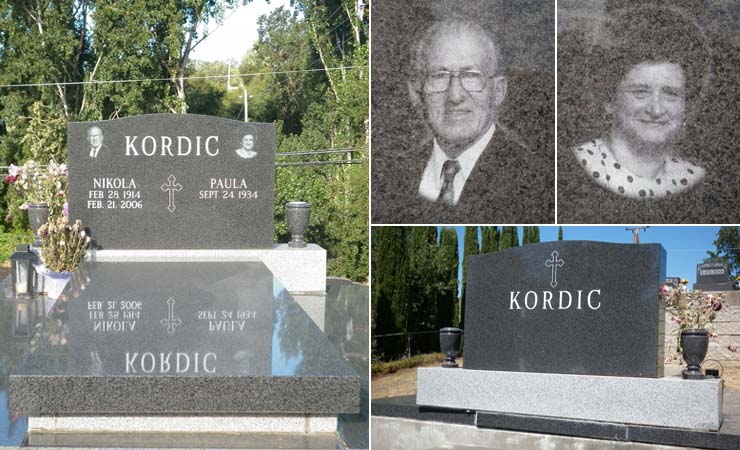Nikola 1914 - 2006, Paula 1934 -
KORDIC
NIKOLA FEB. 28. 1914 - FEB. 21. 2006
PAULA SEPT. 24. 1934 -
A great man is one who collects knowledge the way a bee collects honey and uses it to help people overcome the difficulties they endure - hunger, ignorance and disease!
- Nikola Tesla
Remember, remember always, that all of us, and you and I especially, are descended from immigrants and revolutionists.
- Franklin Roosevelt
While their territory has been devastated and their homes despoiled, the spirit of the Serbian people has not been broken.
- Woodrow Wilson

Nikola 1914 - 2006, Paula 1934 -
KORDIC
NIKOLA FEB. 28. 1914 - FEB. 21. 2006
PAULA SEPT. 24. 1934 -